Filter by

After the Pink Tide
The left-wing Pink Tide movement that swept across Latin America seems now to be overturned, as a new wave of free-market thinkers emerge across the continent. This book analyses the emergence of corporate power within Latin America and the response of egalitarian movements across the continent trying to break open the constraints of the state. Through an ethnographically grounded and localized…
- Edition
- -
- ISBN/ISSN
- 9781789206586
- Collation
- -
- Series Title
- -
- Call Number
- -
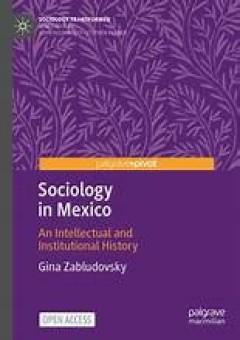
Sociology in Mexico
This open access book presents a condensed history of Sociology in Mexico from its origins, through to the middle of the 19th century and up to the present day. The book analyses the interaction between sociology and the main economic, political and social change in the country, including the 1910 Mexican Revolution, the main social movements, the role of the intellectual exiles from Spain and …
- Edition
- 1
- ISBN/ISSN
- 978-3-031-42089-4
- Collation
- oer.unej.ac.id
- Series Title
- Sociology Transformed
- Call Number
- -

Indigenous Cultures and Sustainable Development in Latin America
This open access book outlines development theory and practice over time as well as critically interrogates the “cultural turn” in development policy in Latin American indigenous communities, specifically, in Guatemala, Honduras, Ecuador, and Bolivia. It becomes apparent that culturally sustainable development is both a new and old idea, which is simultaneously traditional and modern, and t…
- Edition
- 1
- ISBN/ISSN
- 9783030370237
- Collation
- IX, 253 hlm; ill., lamp.,
- Series Title
- -
- Call Number
- -
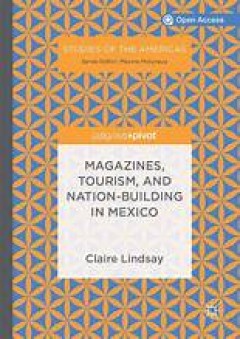
Magazines, Tourism, and Nation-Building in Mexico
This open access book discusses the relationship between periodicals, tourism, and nation-building in Mexico. It enquires into how magazines, a staple form of the promotional apparatus of tourism since its inception, articulated an imaginative geography of Mexico at a time when that industry became a critical means of economic recovery and political stability after the Revolution. Notwithstandi…
- Edition
- 1
- ISBN/ISSN
- 978-3-030-01003-4
- Collation
- oer.unej.ac.id
- Series Title
- Studies of the Americas
- Call Number
- 324
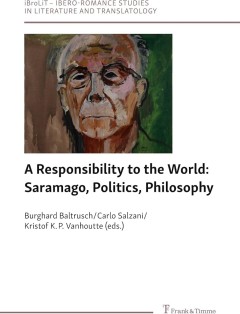
A Responsibility to the World: Saramago, Politics, Philosophy
In a 1987 interview, José Saramago eloquently expressed what could be considered his political-philosophical manifesto: “Human beings should not content themselves with the role of mere observers. They bear a responsibility to the world; they must actively engage and intervene.” In 1998 the celebrated writer was honoured with the Nobel Prize for Literature. So Saramago did not only as a hu…
- Edition
- 1
- ISBN/ISSN
- 978-3-7329-8985-0
- Collation
- 302
- Series Title
- iBroLiT – Estudos Iberorrománicos de Literatura e Tradutoloxía. Ibero-Romance Studies in Literature and Translatology
- Call Number
- -
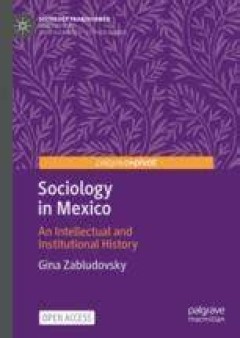
Sociology in Mexico
This open access book presents a condensed history of Sociology in Mexico from its origins, through to the middle of the 19th century and up to the present day. The book analyses the interaction between sociology and the main economic, political and social change in the country, including the 1910 Mexican Revolution, the main social movements, the role of the intellectual exiles from Spain and …
- Edition
- 1
- ISBN/ISSN
- 978-3-031-42089-4
- Collation
- -
- Series Title
- Sociology Transformed
- Call Number
- XIV, 90
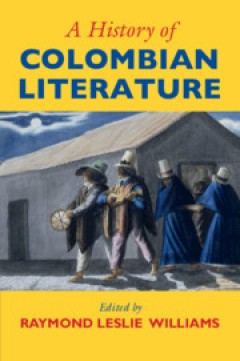
A History of Colombian Literature
In recent decades, the international recognition of Nobel Laureate Gabriel García Márquez has placed Colombian writing on the global literary map. A History of Colombian Literature explores the genealogy of Colombian poetry and prose from the colonial period to the present day. Beginning with a comprehensive introduction that charts the development of a national literary tradition, this Histo…
- Edition
- -
- ISBN/ISSN
- 9781139963060
- Collation
- -
- Series Title
- -
- Call Number
- -
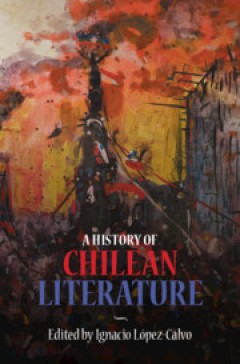
A History of Chilean Literature
This book covers the full range and diversity of Chilean literature from the times of the Spanish conquest to the present. By emphasizing transnational, hemispheric, and global approaches to Chilean literature, it reflects the relevance of themes such as neoliberalism, migration and exile, as well as subfields like ethnic studies, and gender and sexuality studies. It showcases the diversity of …
- Edition
- -
- ISBN/ISSN
- 9781108766616
- Collation
- -
- Series Title
- -
- Call Number
- -
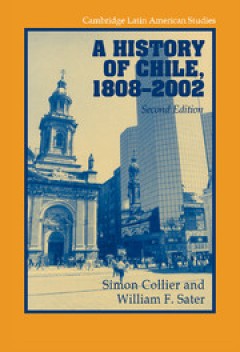
A History of Chile, 1808–2002
A History of Chile chronicles the nation's political, social, and economic evolution from its independence until the early years of the Lagos regime. Employing primary and secondary materials, it explores the growth of Chile's agricultural economy, during which the large landed estates appeared; the nineteenth-century wheat and mining booms; the rise of the nitrate mines; their replacement by c…
- Edition
- -
- ISBN/ISSN
- 9780511991189
- Collation
- -
- Series Title
- Cambridge Latin American Studies
- Call Number
- -
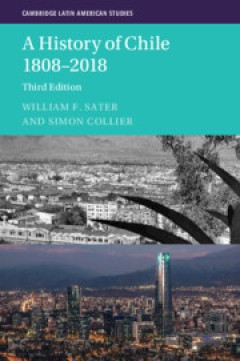
A History of Chile 1808–2018
As Chile has continued to grow and prosper in the twenty-first century, this new edition of the definitive history of the country brings the story of its political, social and cultural development up to date. It describes how Ricardo Lagos and Michelle Bachelet, both highly educated Socialists, modernized the country and integrated new interests into Chilean political life, and how the billiona…
- Edition
- -
- ISBN/ISSN
- 9781009170222
- Collation
- -
- Series Title
- Cambridge Latin American Studies
- Call Number
- -
 Computer Science, Information & General Works
Computer Science, Information & General Works  Philosophy & Psychology
Philosophy & Psychology  Religion
Religion  Social Sciences
Social Sciences  Language
Language  Pure Science
Pure Science  Applied Sciences
Applied Sciences  Art & Recreation
Art & Recreation  Literature
Literature  History & Geography
History & Geography